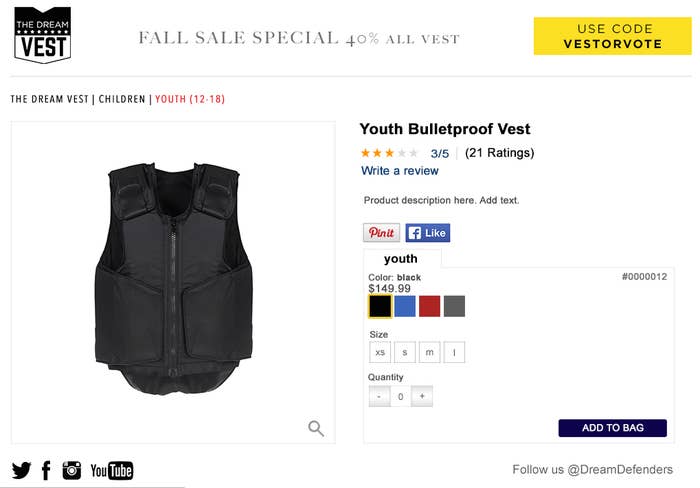WASHINGTON – The ad is in black and white, and features a young mother and her son in her kitchen. She puts her coffee mug down to distract her son from a video game he's playing.
"Did you study?" she asks intently. He says yes.
Of even more concern than homework, though, is her request that he wear a bulletproof vest. "I need to know when I'm at work that you're going to be safe," she pleads. "Do it for me." After initially resisting, he eventually complies.
"Every 28 hours an African-American is killed by a police officer, security guard or vigilante. No parent in America should have to put their child in a bulletproof vest. On Nov. 4, you have a choice; Vest or Vote," it says.
The ad is a about a minute-and-a-half will run on YouTube and stream on the DreamDefenders.org. It's already getting attention in some Democratic circles. The creative was done in partnership with BRPR Group based in Miami, a Dream Defenders spokesman said.
It's part of the Dream Defenders' "Vest or Vote" campaign, which organizers say is meant to relay dramatic irony around the urgency of voting in this year's midterm elections. Dream Defenders accepts grants from individual donors; a crowd funding campaign on IndieGogo recently raised $22,000. It is based in Florida with ten chapters, mostly on college campuses, including Florida State, Florida A&M and Florida Atlantic.
Phillip Agnew, the executive director of the Florida-based group, is also a paid organizer for the SEIU.
A spokesman said the campaign also has a billboard in Tallahassee, as well as a digital ad [shown below] on the Dream Defenders' website which parodies an online sale for bulletproof vests.
"It's what we call exaggerated reality," said Steve Pargett, communications director for Dream Defenders. "But here in Florida, it really is the way that mothers are thinking. Mothers are scared for their children. And young people don't feel as safe as they did before Trayvon Martin was killed. It's a reality for people living here."


